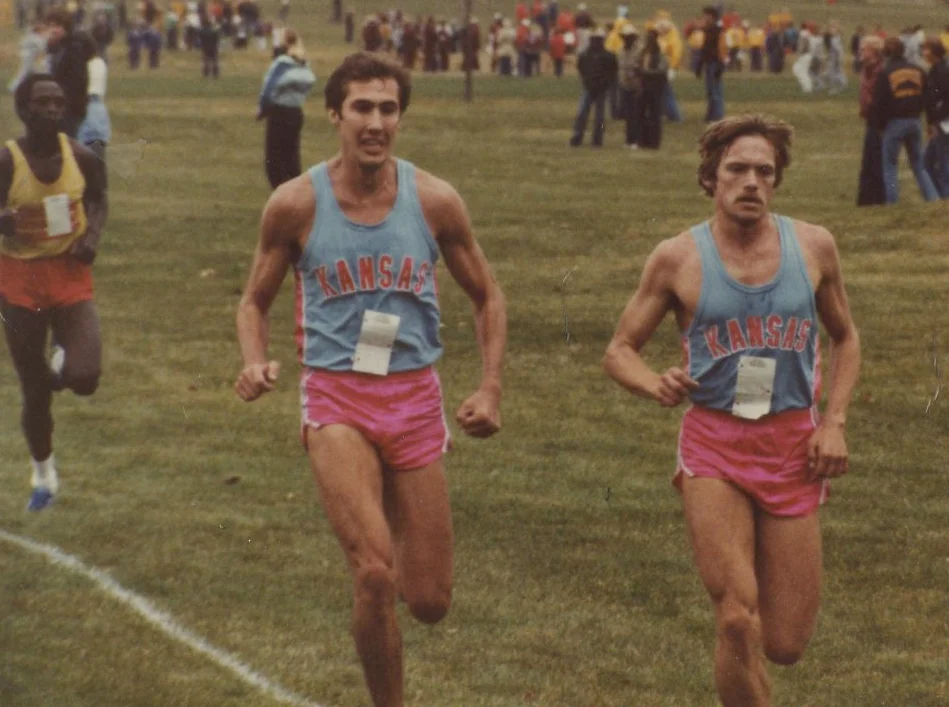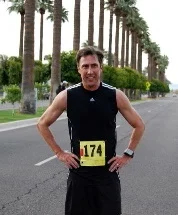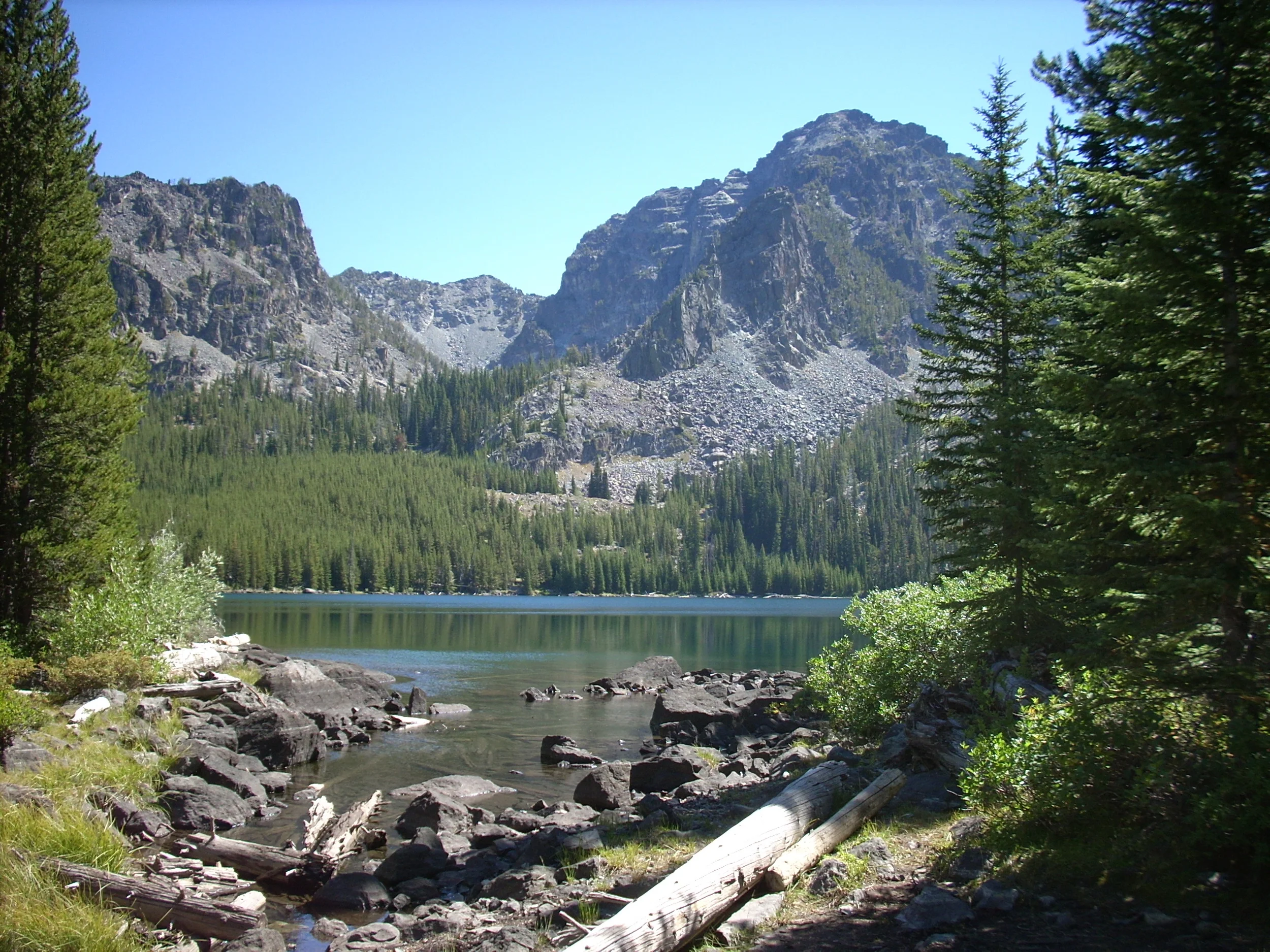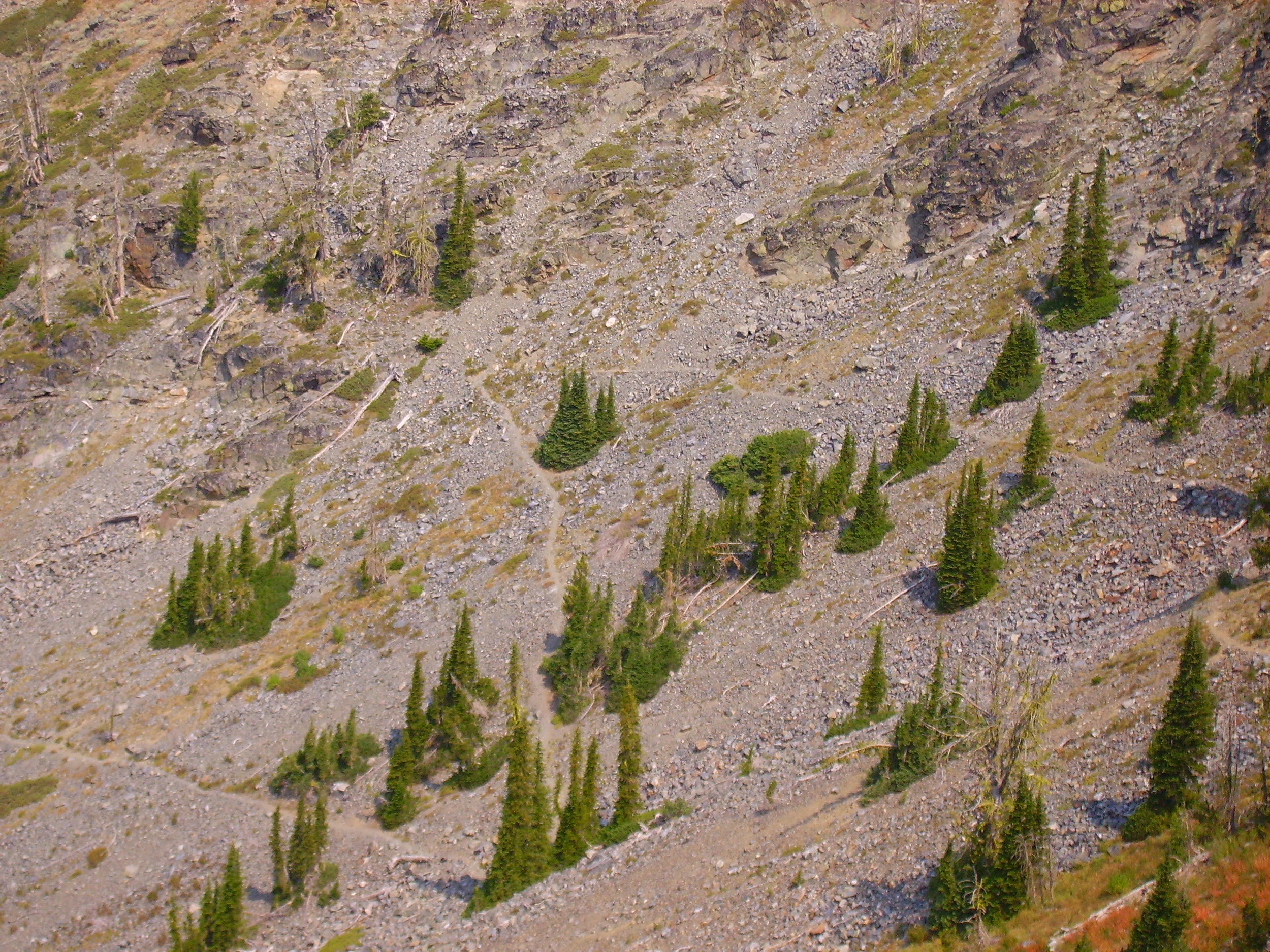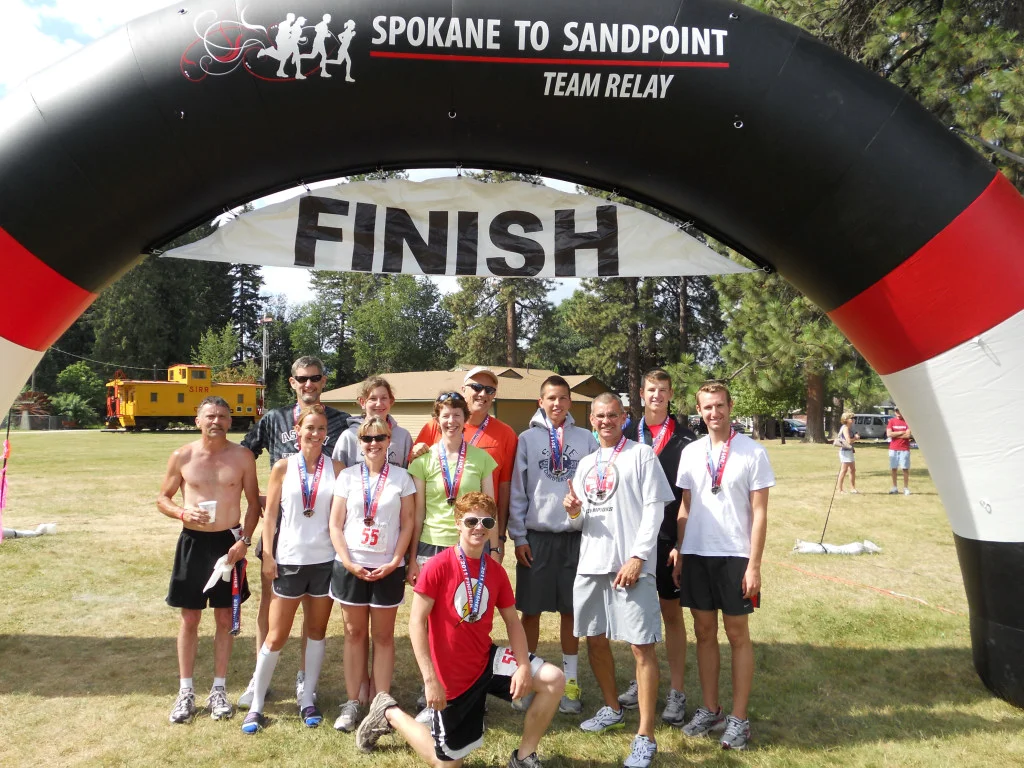Tim Tays, the Interview
Tim Tays sat down and wrote an unflinching look at his running life, Wannabe Distance God: The Thirst, Angst, and Passion of Running in the Chase Pack. Covering his evolution as a school boy phenom, to his years as a Kansas Jayhawk, and beyond, to the injury that derailed his hopes of cracking that last upper elite, Wannabe Distance God touches poignantly on the desire, disappointment, and acceptance of young man's struggle to match his own expectations.
After reading his book, I wanted to sit down and talk with Tim. I reached out to Tim and he graciously agreed to be interviewed. Distance presented a problem, the internet provides the solution, and we did the interview by email. (I love technology when it works.)
Paul - I love the title of your book, “Wannabe Distance God.” I know that some great runners - Bill Rodgers, for example – have read your book and been favorable. How are the more everyday runners reacting? Are you getting some feedback from them and what kind? A lot of us are wannabes, too. . .
Tim Tays - I got feedback from everyday runners as well as elite runners. Because this was my first published book (and my first attempt at marketing a book), I learned that distance runners are not a homogeneous population. While writing WDG I thought anyone who ran would want to read about the running experience. But I discovered that weight-cutting joggers are very different from mileage-piling distance runners, who are very different from time-dropping competitive distance runners, who are very different from T&F News-reading distance running fanatics. I guess I thought everyone who ran was a distance running fanatic like me.
So to directly answer your question, it wasn't name dropping elite runners from the Golden Era that resonates the most with everyday runners. It wasn't even how fast I was or was not. It was about my personal psychodynamics that led me to hardcore distance running the everyday runner enjoyed the most. They also enjoyed our shared experiences regardless of the level we eventually attained or how badly we wanted it. It was about the shared struggle, the shared feelings. I also wanted to give the chase-pack runner a voice, because I certainly couldn't write from the perspective of an elite runner.
I researched the market, and took stock of what I wanted to write about, and decided that the voice of a chase-pack runner was missing. Everyday runners are somewhat aghast at the commitment, work, and struggle involved to try to become elite. Elite runners enjoyed the interpersonal camaraderie and rivalries we all experience on a team and in races.
Paul - In Chapter 16, War Paint, you talk about Alberto Salazar – mostly favorably – but you take him to task a bit for his comment “It certainly wasn’t due to physical talent . . .” A lot of runners will agree with you that talent is inbred. You were a worker, and also talk about his other point, that running well is incredibly hard work, long before you hit the track. How frustrated did you, or do you, get when you see people with true talent that won’t do the work? Has that attitude changed over the years?
Tim Tays - When I strove for distance god status I saw many people more talented than me who wasted it by getting distracted or lazy. I liked it. It meant I had a chance to outwork them and maybe beat them. After my running career ended and I became a high school coach, I continued to see very talented runners, some of whom wasted their gift. All I could do was pull them aside and inform them about the consequences of their action (or inaction). Some boys did what I recommended and their times dropped. Other boys did not make the commitment and their performances reflected that. But being in my 30's by then, I knew the life lessons they learned were more important than how fast they ran in high school.
Paul - I joke that writing and publishing a book is like parading down Main Street naked, that the best authors strip themselves bare emotionally. In Wannabe Distance God, you’ve done exactly that. How painful was that and what part was the hardest to open up about?
Tim Tays - It was not a painful process for me at all, despite my "nakedness." It was joyous. I loved revisiting my years on the track and roads. I mean, sure, I felt loss and grief remembering my limits, failures, mistakes, and losses, but emotional trauma is treated by going through it again. On the other side of the telling it feels just a bit better.
Tim Tays (Left Kansas racer) and Paul Schultz (right)
Also, keep in mind that I got to relive the wonderfulness of the whole running scene. To have people enjoy and empathize with my journey is very validating, something most people don't get to have because they don't write memoir. Some of the hardest things to tell about were my youthful mistakes (e.g., pissing in an elevator, abusing alcohol, holding grudges, overly competitive, etc.). But I decided that the only original story I had to offer was my unique story, to include the victories and defeats, the awesomeness and the stupidity. If I was less than authentic readers would see right through it and set it down.
An advantage I had as a clinical psychologist was I knew it was our vulnerability that endears us, that bonds us, that builds trust. So I took a risk to tell the truth so that my readers would trust me. Only one person—out of the hundreds who have read my story thus far—has attacked me for telling my truth. I like those odds enough to write another book.
(Virtual interruption from Paul – Please do!)
Paul - The stories today about performance enhancing drugs are nearly non-stop. During your most competitive years, did you ever have to worry about your competitors having an unfair advantage?
Tim Tays - I worried about it, sure. Back in the 1970's and '80's we worried that blood doping would put us at a disadvantage, but I never knew anybody that did it. In fact, my impression of distance runners was scrupulous honesty around everything regarding training and racing. Maybe I was naive or just lucky, but I never knew any cheaters. Me? I always took pride in my integrity as a distance runner, and I perhaps projected that onto my teammates and competition. Didn't we all love distance running and would never do anything to hurt our sport or spoil our effort? Today when I hear about runners (usually sprinters) using PEDs my blood boils. How dare they?!
Paul - You explain at length about your early OCD behavior. I found it interesting that you use the experience to assist in helping others in your practice. Normally, when the general public considers true OCD behavior patterns, it is with a very strong negative connotation. What other areas have you noticed that it helps in, where it might serve a positive purpose?
Tim Tays - Everyone has anxiety because that's what's normal for humans. However, when we have too much anxiety it may take the form of an anxiety disorder such as OCD. In my case I channeled my compulsiveness (holding my breath, stretching my mouth, etc.) into something more socially acceptable and productive (i.e., distance running). Lots of people do that. Maybe it manifests as straight A's in graduate school, or a super clean house.
The problem is the person is not in control, the OCD is. In my case it led to lots of mileage, but with occasions of over training and injury. A better approach would've been to train smarter, not just more and harder.
I no longer suffer from OCD, but I still need to be vigilant. One of the best things about my past struggle with OCD was not only getting more high-mileage weeks in, but today in my practice I understand on a gut level what my clients are going through—how crazy it is but you still need to do it—and I know there's a way through it.
Paul - You took a year off from Kansas after the tragedy of losing your mother. You worked at a metals supplier and ran in the mountains. Do you think that the year off from structured competition helped you gain perspective on the relationship you had with her? With running?
Tim Tays - This was a very difficult question for me to answer. In fact, I skipped it and left it for last. I had to think about it. Hmm.... Thirty-four years has given me perspective, but you ask about a single year, 1980, the year of her death, when I was twenty. I was devastated. I was liberated. I adored my mother. I left home at seventeen to escape her. She gave me God and my world view...and then she took it away when she became a martyr. So no, I guess in the year she died I gained zero perspective, I just ran my ass off as usual. In the decades after, yeah, I've had to decide what my personal world view is, how it is different from hers, how disappointed she would be that I am not a Christian Scientist, and how proud she would be of how I've found my own healthy path in life.
Paul - Tim Gundy, a friend of mine, a heck of a runner, and an even nicer person, was a teammate of yours at Kansas during your senior year when you held the captaincy and considers you one of his running idols, someone for whom he has tremendous respect for. He wasn’t aware of the issues you bring out in your book. How important was it to you to keep the focus on the team and not on yourself? Was that part of your recovery process, even if you didn’t realize it?
Tim Tays - I didn't realize I hid myself. I just wanted to kick ass. Cross country and track were such individualized sports that, as a young man, I generally lost sight of what the team did. I wanted to do well, and if the team also did well that was great, but the absolute minimum was me whupping bags of Big 8 butt. My attitude was the better I ran the better it was for the team, so I focused on myself.
Tim Tays, racing indoors at Kansas, date unknown.
That said, I was too self-centered and could've been a much better captain than I was. I didn't receive much guidance as a kid, and so I assumed others didn't expect it from me. I led by example. I showed up, tried to lead the workout, and went to the library to study. It was simple in college, right?
In retrospect I should've reached out to the younger runners, encouraged them. But I feared other runners would beat me and prevent my success. I was afraid that I wouldn't be somebody. I wish I had been more mature, but I've mostly forgiven myself for my immaturity as a late-adolescent. Also, realistically, in a hyper-macho environment like DI athletics I shared very few of my vulnerabilities.
Certainly today, I'd let in someone safe like Tim Gundy, but at the time, I felt intimidated and competitive. Gundy would end up a sub-4 miler, which could easily have bumped me from the mile lineup or off a relay. I'd enjoy my teammates and the experience more if I could do it over again. As a coach I encouraged my runners to enjoy each other and the short shelf-life of high school and collegiate distance running careers.
Paul - After the tale of the All Military Track and Field Championships and your injury, you flash forward to the 49 year-old version of you. The intervening years you didn’t run. When you started to run again, was the running this time more precious because you hadn’t been run for so long?
Tim Tays - Oh, yes, I savored it. I thought I would never run again. But as I rounded into shape, "Timmy Two-Mile" returned, just as immature and driven as before. I so enjoyed racing again and returning to the Boston Marathon. I learned that putting me back in a similar situation I responded as I had 25 years before because that part of me hadn't grown. That part of me still wanted to kick ass and take names, to be a distance god. So I reevaluated my expectations and learned to enjoy being a distance runner even if I'd never be a distance god.
Paul - You’re a wannabe distance god. Which distance god did you wannabe? (For me, it’s Emil Zatopek, btw)
Tim Tays - That's such an easy question for me: Jim Ryun. I guess he's technically a middle-distance god, but he was a distance runner to me because I became aware of him in junior high and high school, when running the mile was considered a long way to run. I went to Kansas University to be like Ryun and train under Coach Bob Timmons. It was a dream come true for me at seventeen years old. Thirty-five years later I sent a promotional copy of my book to Ryun, which he read but told me he could not endorse it and hoped I would understand. I'm sure he had good reasons, but still I was crushed.
So even well into my fifties I'm still getting reality checks. It's probably good for me. It's probably building my character in some way I don't even know that I need. Anyway, nowadays my answer is still Jim Ryun, but I need to add Billy Mills, whose graciousness blows me away, and Bill Rodgers, the most ego-less celebrity I've ever met (online). They are incredible ambassadors for distance running.
Paul - Last question: You have a metaphysical hotline to young Timmie Two-Mile and a lifetime of perspective to share with him. What could you say to him that he might listen to? Would you?
Tim Tays - Listen up, Timmy Two-Mile, you don't need to run to be a good person. That said, if you choose to run, then run smart. Keep the drive and the passion, but rest when you should, eat a healthy diet, find a running club for support (the lone wolf thing is too hard), invest in friendly relationships, draft more instead of impulsively moving to the front, and enjoy the ride.
Would Timmy Two-Mile listen to me? He would probably listen respectfully, nodding and smiling, and then surge to the front of a hot race, try to burn and bury runners way better than him, get into oxygen debt, fade, finish in the chase pack, get pissed off, up his weekly mileage, and then do it all over again next week in another city.
My thanks to Tim Tays for the opportunity to interview him. The book cover image at the top will take you to Amazon to purchase the book - though I expect you can find it elsewhere, too. My thanks to Tim Gundy for pointing out the book to me - as runners turned writers, we don't have big publisher marketing budgets. A lot happens by word of mouth, so when you're done with Wannabe Distance God, I'm sure that Tim Tays would appreciate you passing on the word.
Thanks everybody. Run gently out there.
Paul Duffau
Paul is the author of two fictional tales of runners: Finishing Kick (recognized by Running Times in their Summer Reading list July, 2014); and his newest novel, Trail of Second Chances. He blogs on the running life and interviews people that he finds interesting.

